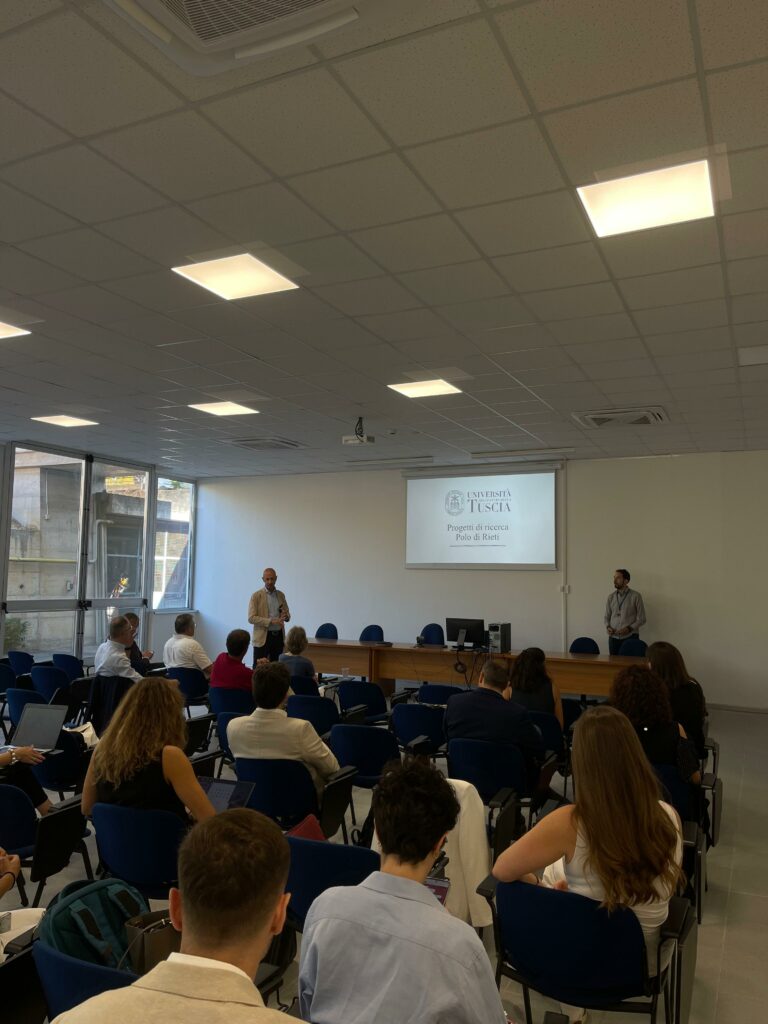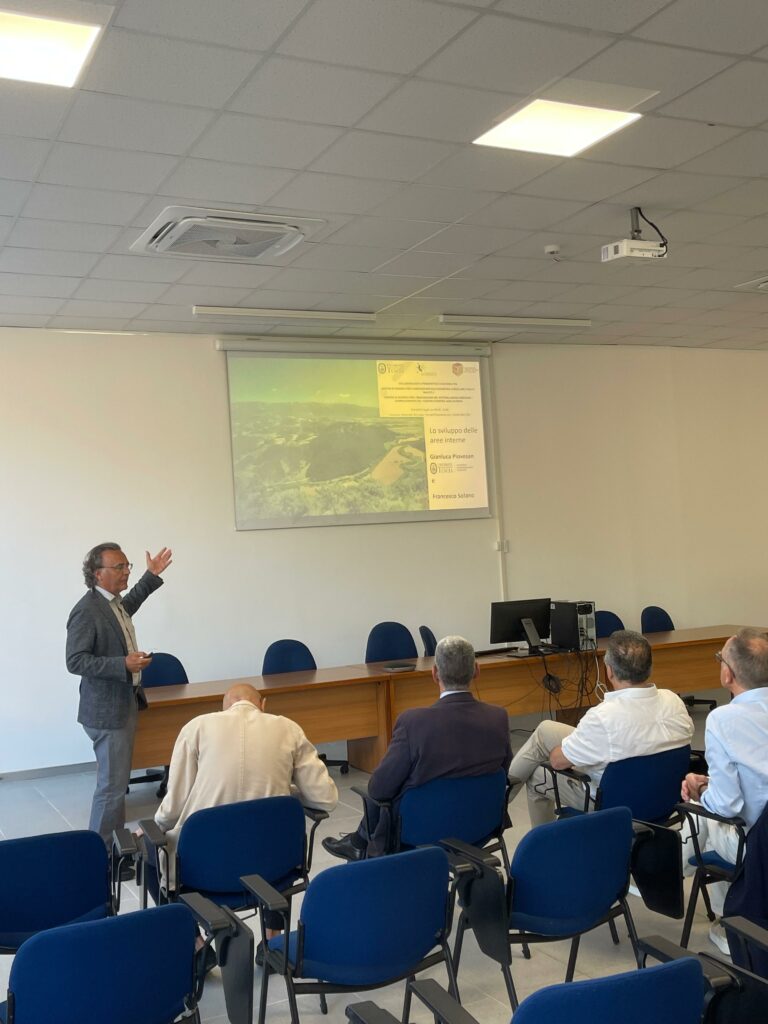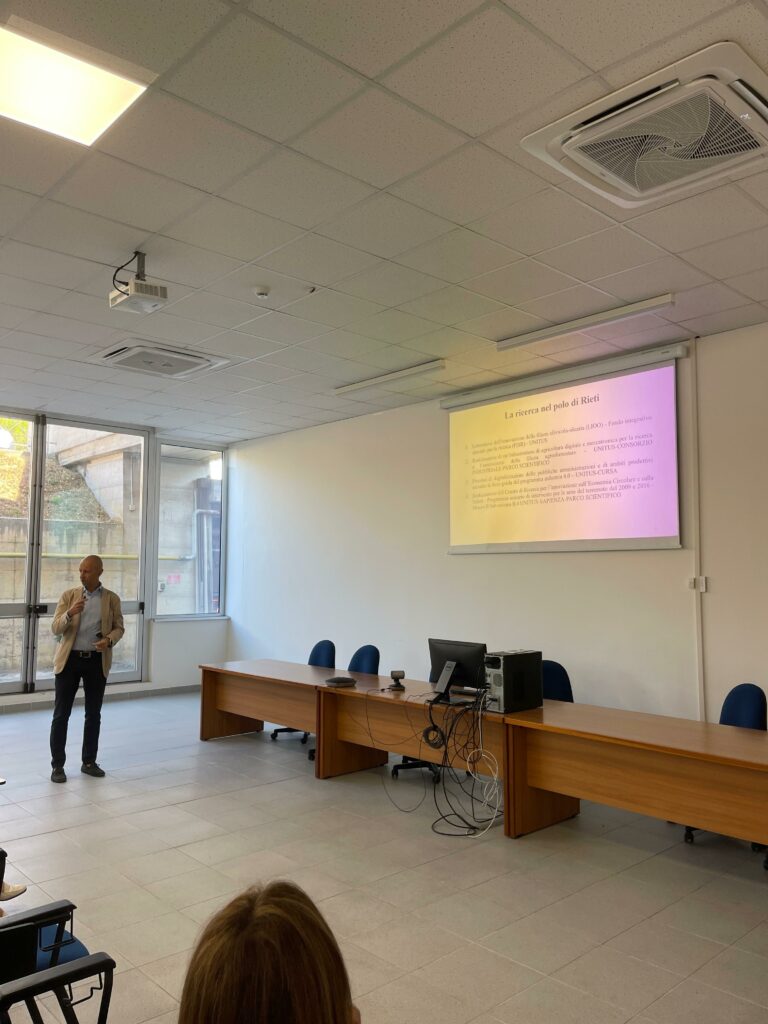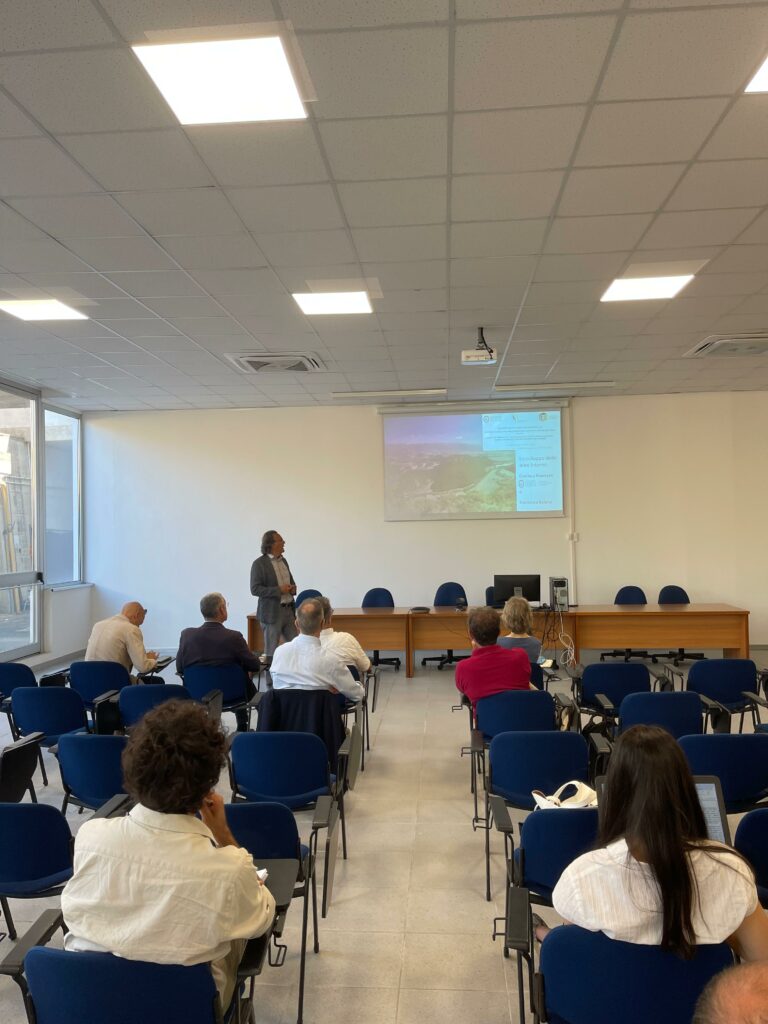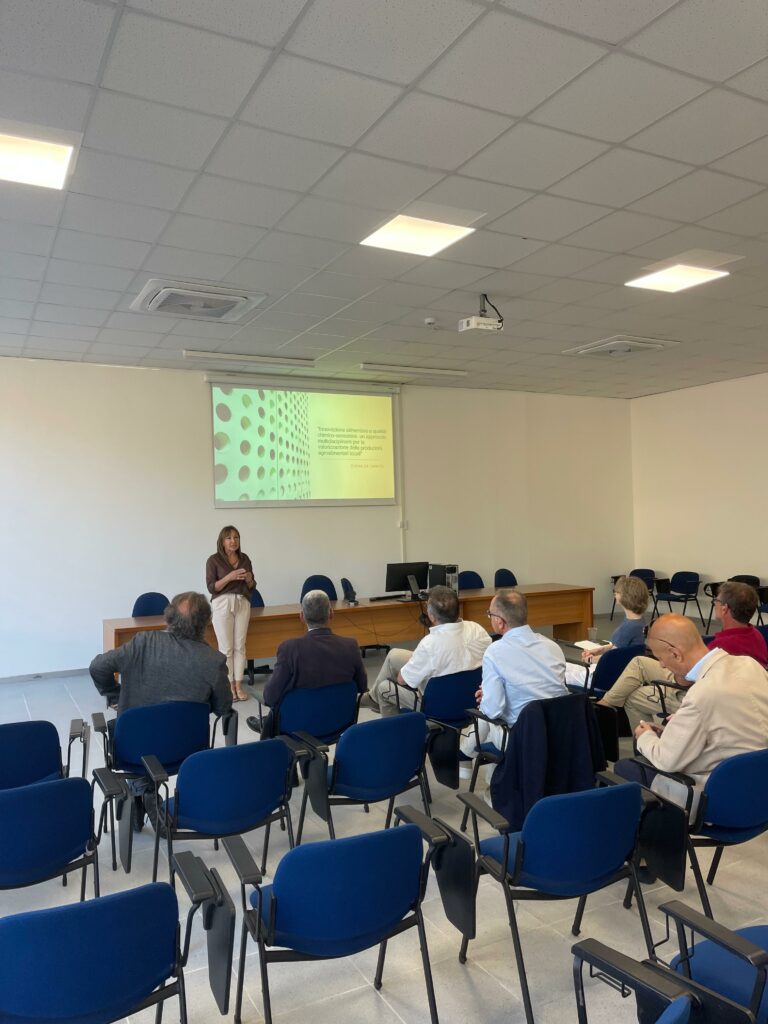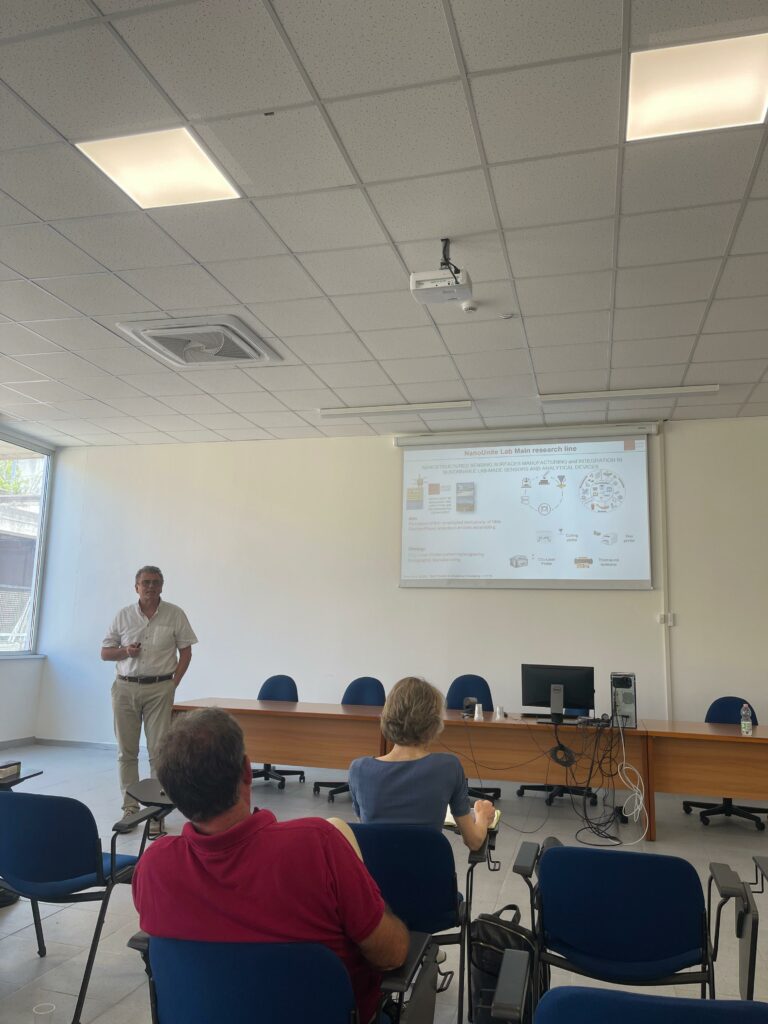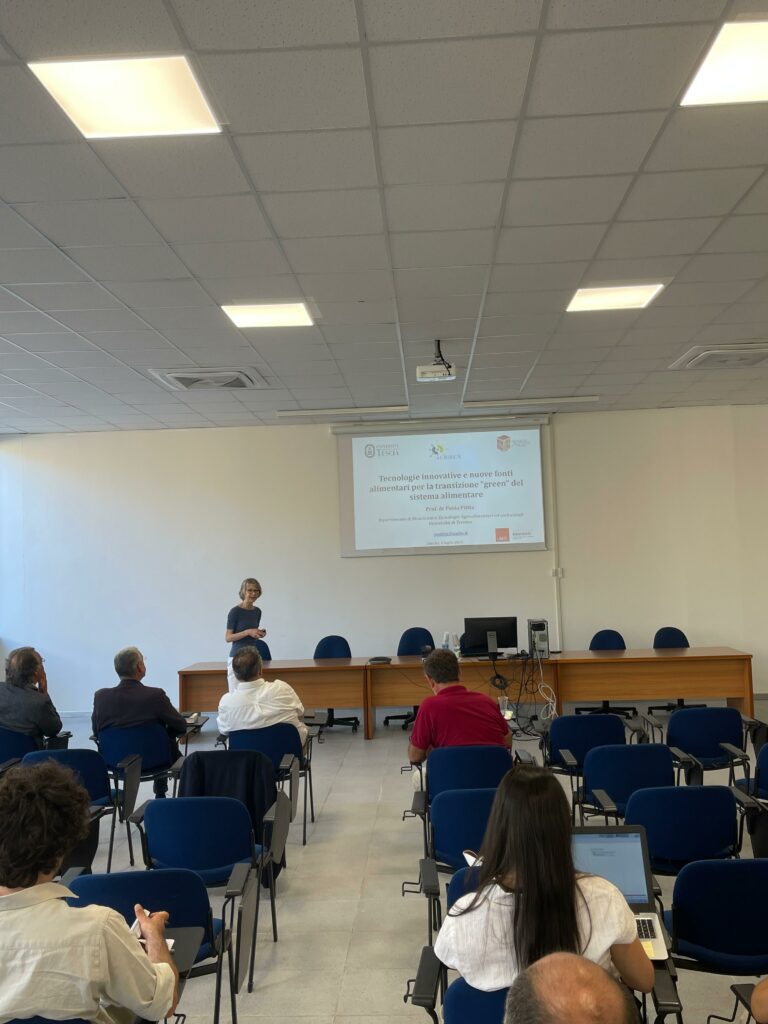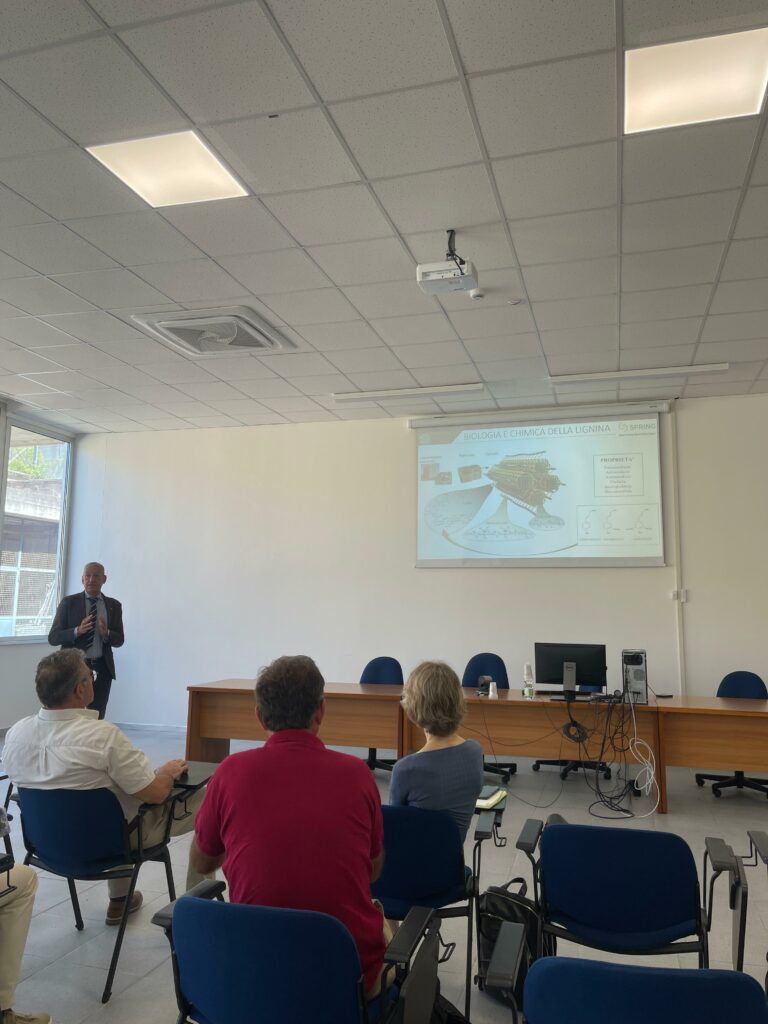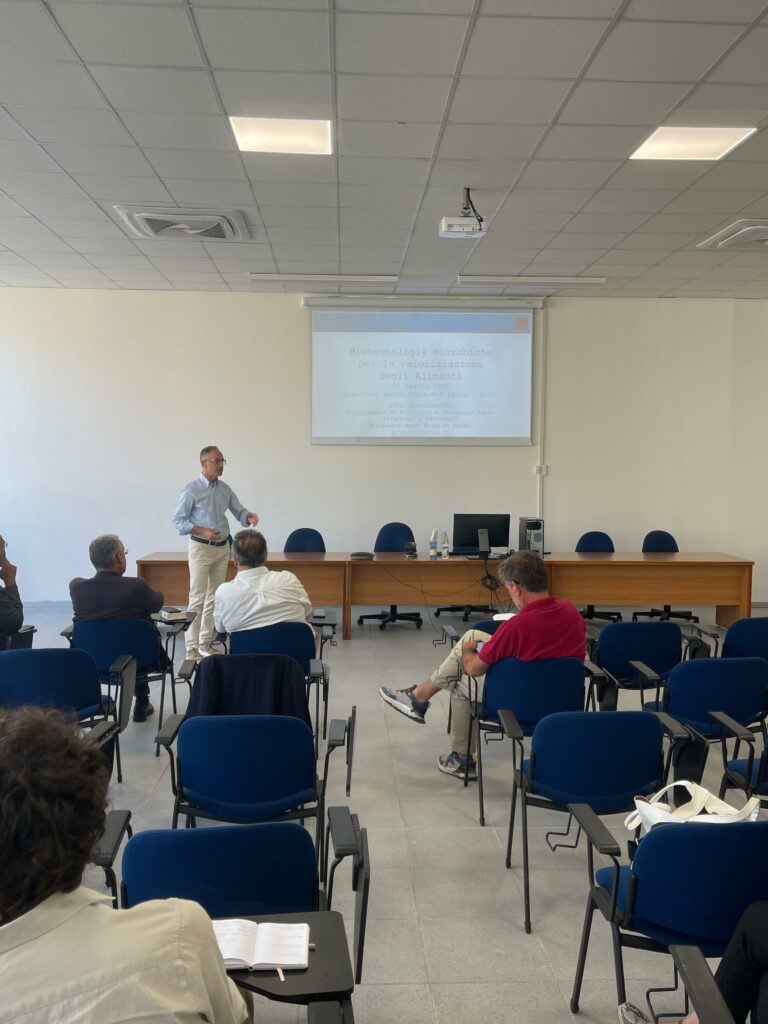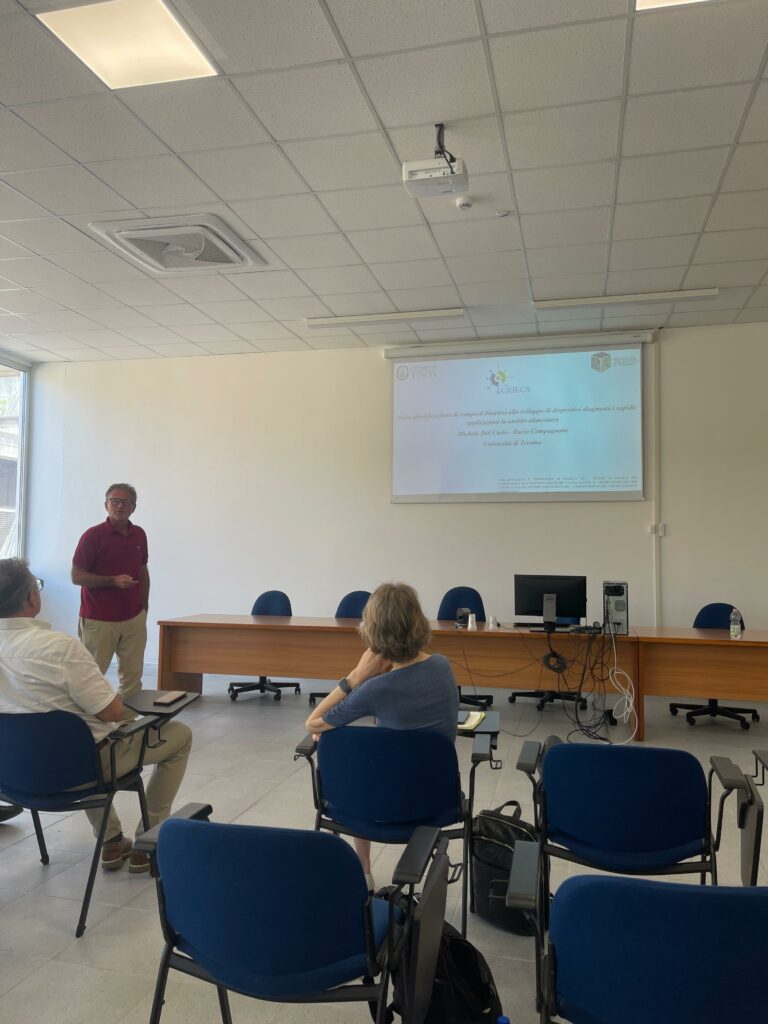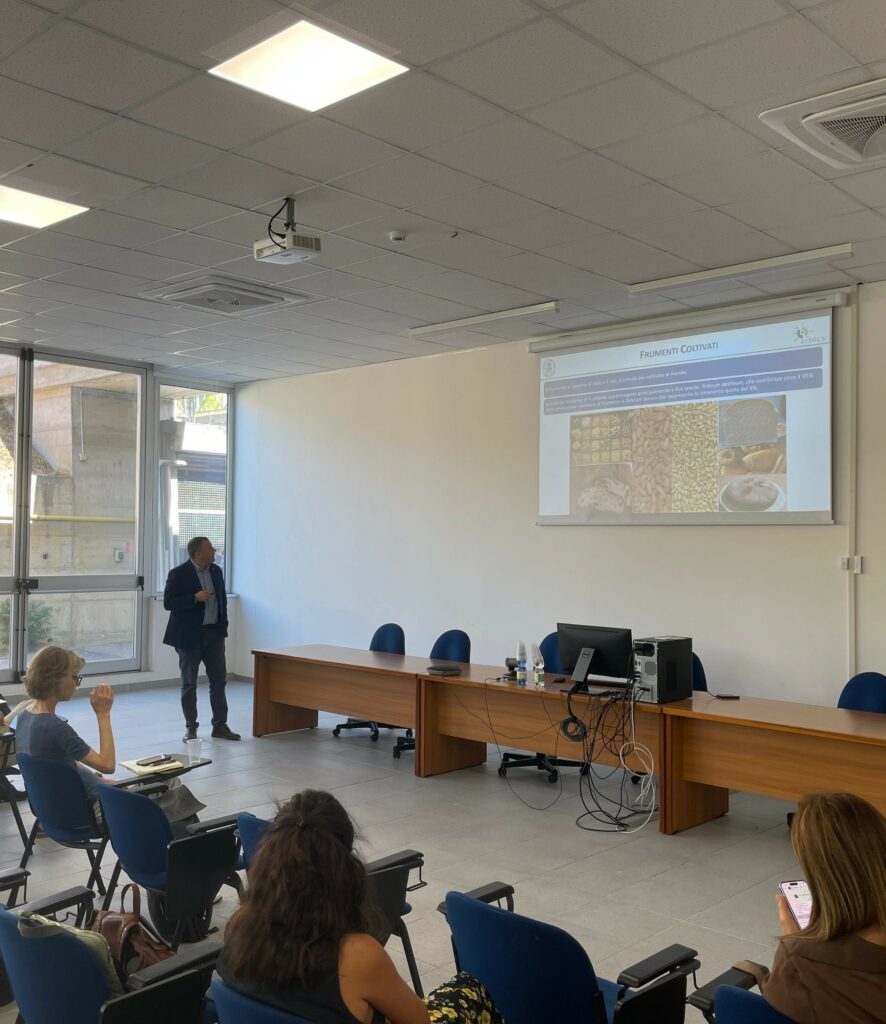On July 1, 2025, a major meeting was held in Rieti at the Research Center for Innovation in the Circular Economy, with the joint participation of the Research Center for Innovation in the Agri-food Sector of the University of Teramo. The event was part of the activities related to the creation of the European Center Agri-BIOSERV, an ambitious project aimed at strengthening collaboration between universities, businesses, and local communities.
The initiative, promoted by the University of Tuscia in collaboration with the University of Teramo, brought together professors, researchers, PhD students, and sector experts to discuss shared strategies capable of fostering sustainable innovation in the agri-food sector—an area increasingly central to European environmental and economic policies.
After a visit to the laboratories, participants attended a series of technical-scientific presentations focusing on:
-
Sustainable development of inland areas
-
Chemical-sensory quality of agri-food products
-
Microbial biotechnologies
-
Use of bioplastics
-
Development of rapid diagnostic devices
An important reflection also addressed the social dimension of circular economy laboratories, emphasizing the value of a multidisciplinary approach and the need for ongoing dialogue between science and local communities.
Among the speakers were professors from the University of Tuscia: Alessandro Ruggieri (Chair of the project’s steering committee), Gianluca Piovesan, Diana De Santis, Francesco Sestili, Raffaele Saladino, and researcher Francesco Pacchera, who spoke on topics such as genetics, organic chemistry, and agri-food supply chains.
From the University of Teramo, speakers included Paola Pittia, Aldo Corsetti, Michele Del Carlo, and Dario Compagnone, experts in food technology, microbiology, and analytical chemistry.
The event highlighted the great potential of inter-university collaborations in creating value through research. In the coming months, this dialogue will continue with the launch of joint projects, scientific exchanges, and shared advanced training programs.
In a context where food safety, circular economy, and environmental sustainability are strategic priorities, these synergies represent a key factor in effectively addressing future challenges through innovative and collaborative tools.





